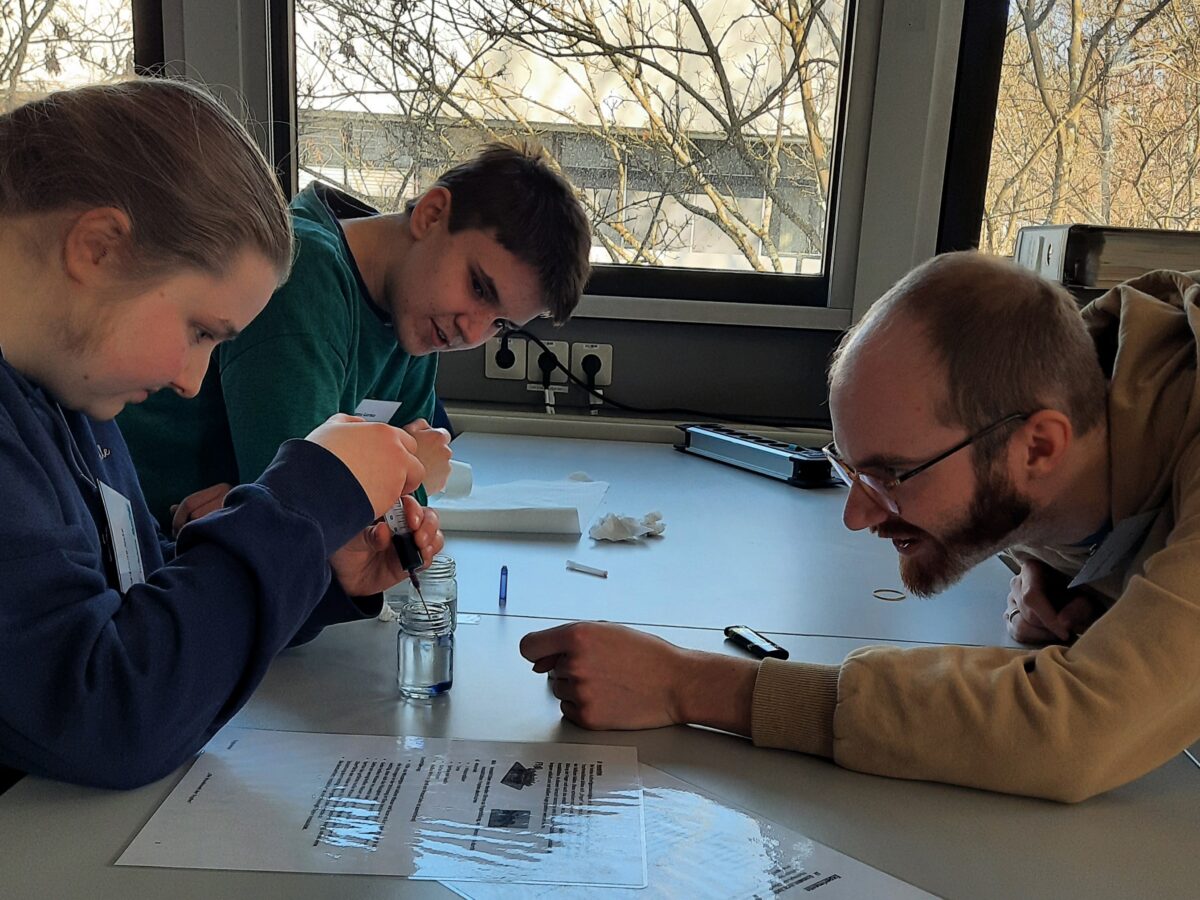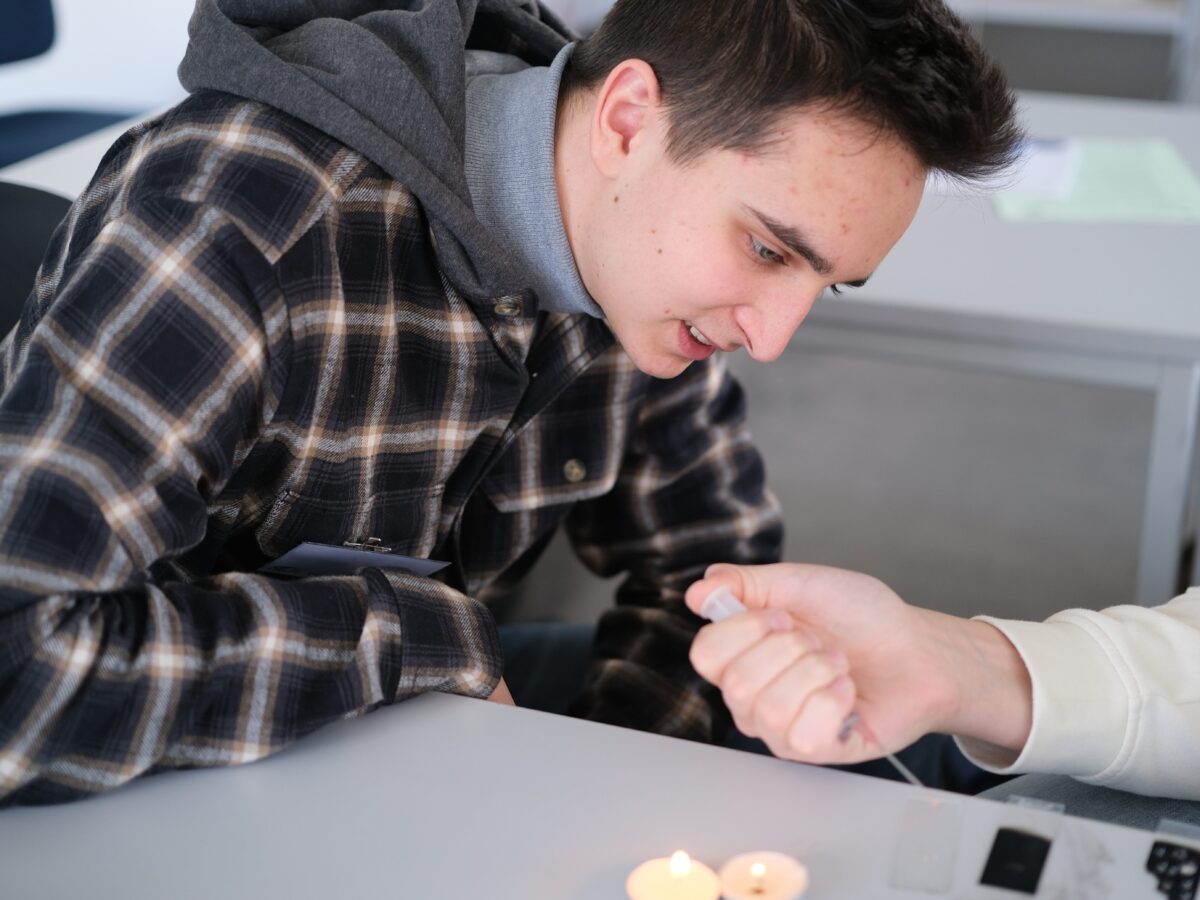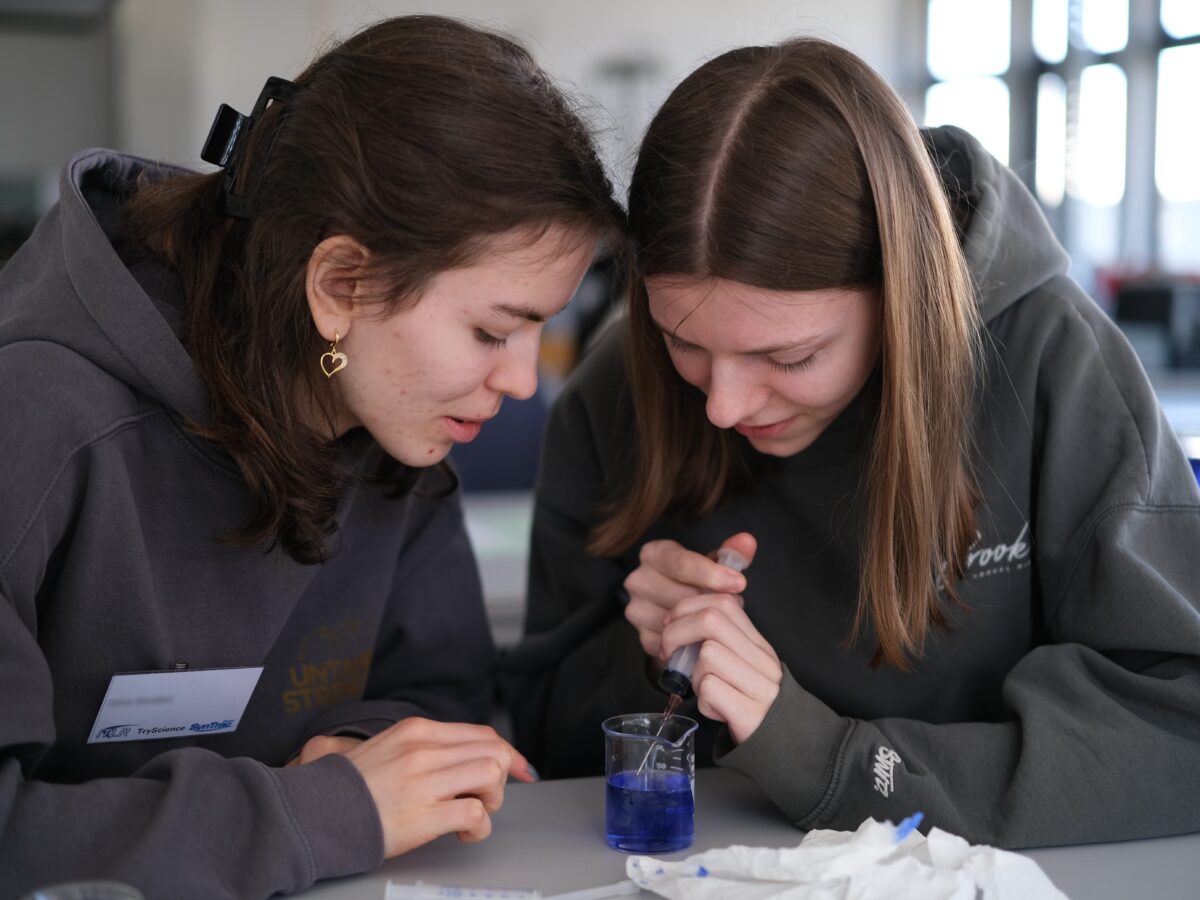SynTrac Inspires Future Engineers at ‘Wunderwelt der Tropfen’
As part of the Try Science initiative at the University of Stuttgart, SynTrac hosted the engaging event “Wunderwelt der Tropfen” in March 2025 — designed to inspire the next generation of engineers. The event welcomed 16 enthusiastic students, aged 16 and above, from various schools, offering them a glimpse into cutting-edge research and hands-on experimentation in the basic science behind engineering innovation.
The event kicked off with an introduction to SynTrac’s mission and research scope, highlighting how the project addresses complex engineering challenges — including advancing greener aviation solutions for a more sustainable future.
The focus of the lecture then shifted to the topic of droplet dynamics which was introduced by David Gösele, who works in sub-project C02 and offered the participants an insight into the experimental and numerical approaches to understanding droplet behavior.
The study of droplets dynamics forms the basis for understanding the condensation of exhaust gas in the aircraft engine and the subsequent transport of excess water. SynTrac is investigating ways to reduce the amount of excess water and thus reduce the formation of contrails. Beyond CO2 emissions, the formation of these contrails, a weather phenomenon where aircraft exhaust produces ice clouds, is a significant contributor to the environmental impact of air travel. Reducing contrails and their climatic effects is a critical issue in shaping the design of future aircraft in projects such as SynTrac.
As such contrail mitigation is a dedicated research focus in SynTrac. The project investigates advanced aircraft technologies, such as optimizing exhaust gas treatment for water recovery through porous media — explored in B04 and C02 subprojects — to reduce contrail formation at its source.
After learning about the scientific basis of our research area, students toured state-of-the-art laboratories, witnessing experiments firsthand and exploring the science behind droplet behavior. Interactive discussions with doctoral researchers provided valuable insights into their career paths, daily research work, and the broader implications of their studies.
The students also had the opportunity to put the knowledge they gained into practice and conduct their own droplet experiments — sparking curiosity and fostering a deeper appreciation for how scientific exploration drives real-world innovation.
Through events like these, SynTrac aims to bridge the gap between academic research and future engineering talent, nurturing a passion for STEM and sustainable technology.



Photos: SynTrac




